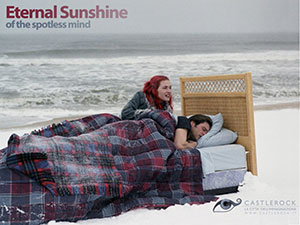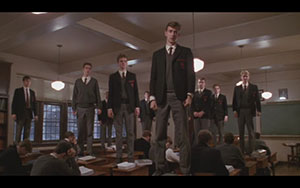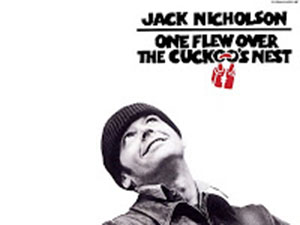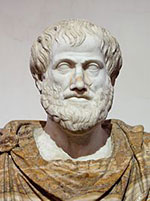
After lamenting the schism between Hollywood and Indie cinema, here I identify the very special sort of story that can reunite these two audiences and achieve the filmmaking Holy Grail: critical and commercial success.
Recap: Why the Hollywood-Indie schism is cheating both audiences
In my last post, I said I was tired of vapid Hollywood blockbusters but almost equally fed up with indie flicks that are typically more heartfelt but often similarly unfulfilling. Studio films are generally missing character and soul, and indie movies too often lack the story craft that can deepen characterisations and create more emotionally profound experiences.
I speculated recklessly on the possibility of Character and Story appearing in the same screenplay and then vaguely recalled that this was once not uncommon. Hollywood directors like Chaplin, Hitchcock and Ford through Wilder and all the way up to Coppola had consistently and harmoniously married Character with Story to produce films of broad commercial appeal that also won Oscars.
These days, films that are able to pull off that popcorn/Chardonnay double-act are extremely rare. But Juno did it. And so did The King’s Speech. And Eternal Sunshine of the Spotless Mind.
I’d love to see more films like this. I want to see more of what I call Transcendent Stories.
What do I mean by “Transcendent Story”?
The word, “Transcendent”, means literally, “going beyond ordinary limits; surpassing or extraordinary”. It has another meaning but we’ll get to that later. For the moment, let’s stick with this connotation of being “superior or supreme”.
Of course, what is great for one viewer might bore the pants off another, so there is no objective way to define what makes for a “great” film. But when I ask a theatre full of AFTRS students to gather in groups of 4-5 to see if they can all agree on an example of “transcendent” storytelling, they tend to come up with films like these:
- The Godfather
- Casablanca
- E.T.
- One Flew Over the Cuckoo’s Nest
- Schindler’s List
- American Beauty
- Star Wars
- To Kill a Mockingbird
- Toy Story (or Toy Story 3 but never Toy Story 2)
- Brokeback Mountain
It’s no coincidence that all of these films won or were nominated for Academy Awards in the Best Film and/or Best Screenplay categories AND they did very well at the Box Office. What are they doing that others don’t?
What separates the great from the good?
I love Raiders of the Lost Ark. I really do. But I consider it an example of a good story – OK, a very good story – but not a Transcendent Story.
Before you Raiders fans get all het up, Spielberg himself admitted as much as: “I made it as a B-movie… I didn’t see the film as anything more than a better made version of the Republic serials.”
Raiders of the Lost Ark is a fine example of what I would call a “Cathartic Story”.
What does it take to be “merely” good? Cathartic Storytelling
More than 2,000 years ago, Aristotle in the Poetics identified the importance of the drama (or Tragedy as he called it) delivering to the audience “Catharsis” – an emotional cleansing. And I think most of us know what he was talking about. A good story gives you this sense of release that seems to be very, well, cathartic. The experience can make us feel like we’ve shed a skin, and, with it, however briefly, the cares of the world.
It has the four storytelling basics I identified in a previous post:
• Engaging protagonist – Indiana Jones, one of the most loved in cinema
• Clear external goal – securing the Lost Ark of the Covenant
• Conflict – Nazis make pretty damn fine antagonists
• Stakes – if the Nazis beat Indie to the Ark, he doesn’t just lose the battle, the Allies lose the war
Raiders doesn’t just have these four elements, it marshals them wonderfully into a pulsating, captivating yarn. In fact, when I am trying to teach the Sequence approach to cinematic storytelling, Raiders is the film to which I inevitably turn.
Each dramatic unit of the story has a clear objective, the outcome of every sequence has a consequence that drives into the next sequence, and the forces of antagonism just get bigger and bigger. It is clearly a cracking good yarn. And it’s one of my favourite films. But I’ve never had anyone suggest in class that Raiders is an example of a “Transcendent Story”.
So what’s missing? For an answer, let’s turn not to our heads but to our hearts.
The most reliable indicator of transcendence
In class, I play the climax of Raiders and then the climax of Dead Poets Society and ask the students, “Which ending moves you more?”
I have never yet had anyone suggest that Raiders has the more powerful third act, and the ending of Dead Poets Society is among the best in cinema history if the emotional reaction I get when it’s played is any gauge.

When I turn up the lights after playing the end of Dead Poets, I see a room full of people who’ve been taken to a rare place.
So, for all its virtues, and for the all the affection in which it is held by so many people, Raiders doesn’t take us to the place that Dead Poets does.
This is not a criticism of Raiders. Just another indicator that, when it comes to story, there is good and then there is great.
Raiders is good. Dead Poets is Transcendent.
What is beyond Catharsis?
In the Power of Myth, Joseph Campbell is asked what it is that people want to get out of story. Are they looking for meaning? Campbell says that he doesn’t believe they are.
“I think that what we’re really seeking is an experience of being alive … so that we can actually feel the rapture being alive.”
This is a really good clue, I think, to helping us identify the qualities that differentiate this higher order of storytelling.
Catharsis is one thing. An emotional cleansing is good. Shedding this metaphorical skin is definitely something that will help us get by. But a story that makes us feel “the rapture of being alive” is something else entirely.
What does Campbell mean by “rapture”? Is he advocating that films should have a happy ending? No, he’s not. On the contrary.
So what is he talking about? What is it about a story that will make us feel “the rapture of being alive” and elevate it to this “Transcendent” class?
How is a folktale different from a myth?
Having studied stories of all kinds, from a very large number of cultures, across thousands of years, Joseph Campbell was uniquely placed to comment on the different and varying effects that stories can have upon us.
And Campbell drew a clear division between stories he termed “folktales” and those he elevated to the level of “myth”.
Folktales, Campbell said, were for entertainment. Nothing wrong with entertainment. But, Campbell felt that we wanted more than this – that as humans we needed more than this – and that myths delivered it.
“The myth”, he said, “is for spiritual instruction”.
Now, before you think I’m going all happy-clappy on you, let me remind you that I’m an atheist. But, I do believe that, to be a well-adjusted human being, it’s essential that you have a spiritual life that is independent of your exertions in the external world.
To nourish this spiritual dimension, those of faith turn to religion. If you believe in God, this would seem to make sense.
But what if your God tells you one thing and someone else’s God tells them something else and the two are incompatible? Or, in the case of Jerusalem or Beirut, the three are at each other’s throats.

The Dome of the Rock sits on a site in Jerusalem revered by three religions whose literal and unbending interpretation of their mythologies makes a peaceful resolution to the Middle East conflict seem an impossibility.
And what if your God preaches the pre-eminence of love but the person you love most intimately – and want to commit your life to – is of the same sex and your God calls your precious union “an abomination”?
And what if, despite a blameless life and your fervent prayers, your five-year-old daughter dies of leukaemia, making you question the existence, the judgement or the compassion of God?
If the word of God doesn’t provide the solution but is actually part of the problem, what then?
So while you might prefer the authority of a God, there is a lot to be said for a source of guidance that is not just non-denominational but secular, that speaks to us all, regardless of race, creed, gender, sexual orientation or faith.
Stories that hold within them a wisdom that resonates across time Campbell called myths. I’m calling them Transcendent Stories. And they are the sort of stories that can heal this Hollywood-Indie rift that is shortchanging both audiences.
What are the qualities that characterise stories of this highest order? In the second part of this post, I identify five qualities that lift the great films above the good.
When is my next 2-day screenwriting course?
Please add me to the Cracking Yarns mailing list
Other posts you might like to read:
Transcendent Story Pt 2 – 5 qualities that lift the great films above the good
Radical Solution to the Hollywood-Indie standoff – Character and Story in the same screenplay


